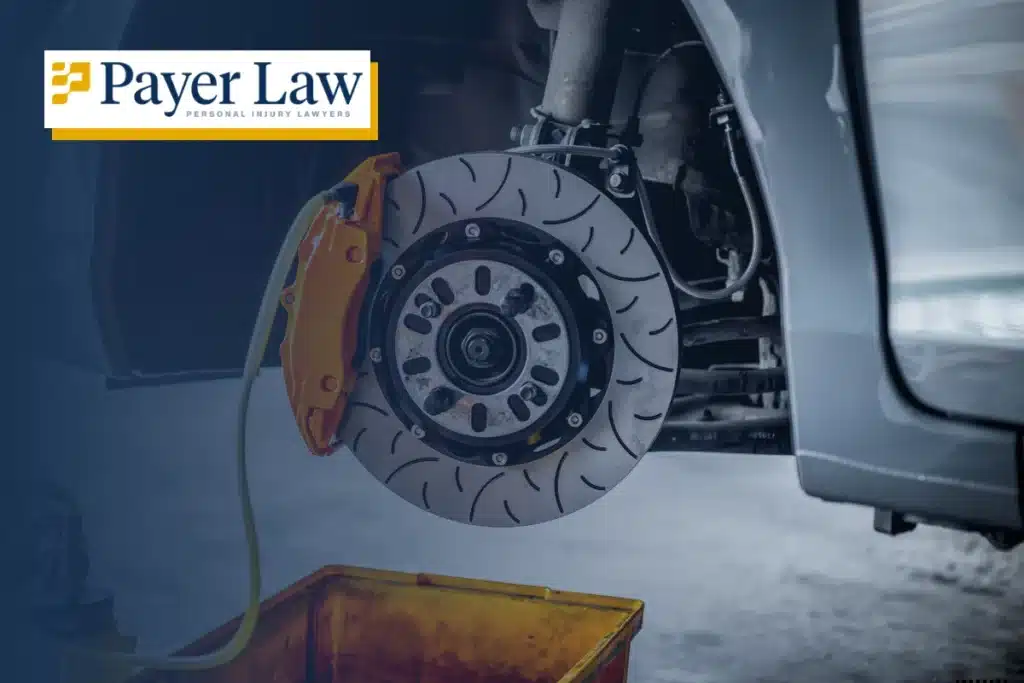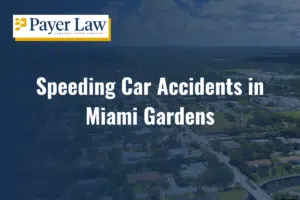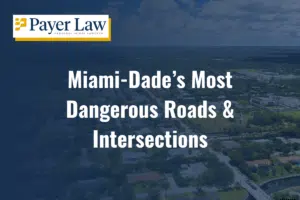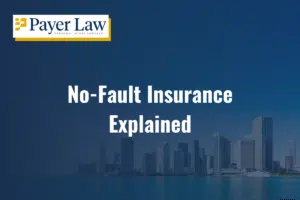Brake checking is a dangerous behavior that can expose drivers to many risks. A driver could get injured in an car accident they caused. The brake checker may become liable for someone else’s injuries. And the brake checker may even get prosecuted for reckless driving.
What Is Brake Checking?
There are two ways to define brake checking. Brake checking may happen whenever you check your brakes. For example, when you drive on a wet road, you may press your brake pedal just to make sure you have enough traction to stop. In a broad sense, you performed a brake check.
But this is not what most people mean when they talk about brake checking. Instead, they mean a much more narrow braking maneuver that happens in response to tailgating. When a tailgater gets too close to the vehicle in front of it, the driver of the front vehicle may slam on their brakes. The term “brake check” in this sense refers to a check of the tailgater’s brakes.
If the tailgater is too close or fails to react quickly enough, they could ram into the rear of the brake checker’s vehicle, causing a rear-end collision.
The Mechanics of Brake Checking Car Accidents
Rear-end collisions caused by brake checking can result in property damage and injuries. In the brake checker’s vehicle, the occupants slam into their seats as the tailgater’s vehicle hits them from behind. Their heads whip back into the headrests, stressing their necks and rattling their brains. When the vehicle stops, they whip forward into their seat belts.
In the tailgater’s vehicle, the occupants fare no better. When they collide with the brake checker’s vehicle, they stop suddenly and whip forward into their seat belts. Their heads continue forward, stressing their necks. As they come to a stop, they fall back into their seats, and their heads whip backward into their headrests.
The frontal airbags will likely deploy in the tailgater’s vehicle. Airbag sensors sit in the front of the vehicle and detect frontal collisions. But the airbags may not deploy in the brake checker’s vehicle since the frontal airbag sensors are not designed to detect a collision at the back of the vehicle.
Injuries That Can Result From Brake Checking
The forces on the occupants of both vehicles can cause severe injuries. Some common injuries from rear-end collisions caused by brake checking include:
Chest Bruises
When vehicle occupants slam into their seats and seat belts, they can suffer chest bruises. These bruises happen when the force of impact breaks the blood vessels under the skin. In addition to discoloration, these bruises cause pain and swelling.
Facial Fractures
Rear-end collisions can create enough force to break bones. When the occupants strike the airbags, steering wheel, or dashboard, they may fracture the bones in their faces, such as cheekbones or orbital bones.
Neck Strain
Neck strain, also called whiplash, happens when the neck gets hyperextended. Specifically, during a rear-end collision, the occupants of both vehicles whip back and forth violently. Their heads pull on their necks, stretching and tearing the neck muscles and tendons.
Neck strain causes symptoms such as:
- Neck pain and stiffness
- Muscle spasms and inflammation
- Weakness
Neck strain will usually heal in four to six weeks after your accident.
Concussion
A concussion happens when your brain shakes inside your skull. The layer of cerebrospinal fluid (CSF) surrounding your brain cushions it from slamming into your skull. But the fluid pressure of the CSF damages the cells of your brain.
The brain swells and causes symptoms such as:
- Headache
- Confusion
- Amnesia
- Ringing ears
- Blurry vision
- Slurred speech
- Clumsiness
Concussion symptoms usually clear up within two months after your crash.
Liability For Brake Checking Crashes in Florida
A brake checker could face legal liability for their actions. This liability could include:
Criminal Liability
Florida’s motor vehicle code does not specifically prohibit brake checking. But it does prohibit reckless driving. This crime happens when someone drives with willful or wanton disregard for the safety of others.
When brake checkers slam on their brakes, they either intend to cause a crash or willfully disregard the risk of a crash. In either case, prosecutors could make the case that the brake checker violated Florida’s reckless driving law. If convicted, a reckless driver could face time in jail.
Civil Liability
A brake checker can face civil liability for the tailgater’s injuries. However, that can only happen if the tailgater can step outside of Florida’s no-fault auto insurance system. In other words, if they suffer severe injuries or their financial damages exceed their PIP policy limits, they may be able to take legal action against the brake checker.
The tailgater may be able to pursue a personal injury claim against the brake checker based on negligence as well as the intentional tort of battery.
Battery happens when someone intentionally causes harmful contact with the victim. Negligence happens when someone fails to exercise reasonable care.
Under either principle, the victim must prove that the brake checker’s conduct directly caused the crash, causing them to sustain damages.
Modified Comparative Fault
Florida follows a modified comparative fault principle. Under this doctrine, the victim’s share of fault for the crash diminishes the damages they can recover. However, they cannot receive compensation if their portion of responsibility exceeds 50%.
For example, if a tailgater bears 30% of the fault for a rear-end crash, the brake checker must still pay for 70% of the tailgater’s losses.
Potential Compensation Available After a Brake Checking Accident in Florida
Once a tailgater proves the brake checker’s liability, they must show the losses they incurred. A tailgater may be entitled to compensation for two types of losses.
First, they can seek compensation for economic damages. These losses include medical expenses, lost income, and other financial costs associated with the injuries.
Second, they can seek compensation for non-economic damages. These losses relate to the diminishment in the victim’s quality of life due to their injuries. Examples of non-economic losses include disability, physical pain, and emotional distress.
A brake-checking accident can cause serious injuries and significant losses. Contact an Orlando car accident attorney for a free consultation to discuss the injuries you suffered and the compensation you can seek for them.
Contact Our Orlando Car Accident Law Firm For Help Today
If you’ve been injured in an accident in Orlando, Florida, and need legal help, contact our experienced car accident lawyers at Payer Law Personal Injury Lawyers to schedule a free consultation today.






